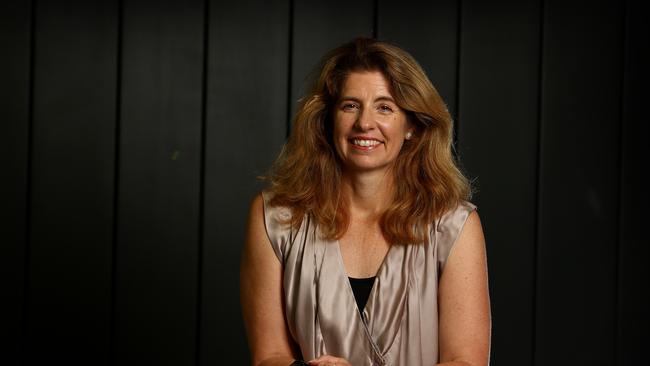
The ACCC ad tech report shows how Google dominates the $9bn ad tech market, which is a bit like saying the Pope is a Catholic — the real test is how to open up the market to make it more competitive. That is the task ahead of Rod Sims at the ACCC and his global peers because, as he notes in the report, it is a global issue but the solutions are a lot tougher because of the complexity involved.
The debate over the media bargaining code is a walk in the park by comparison because the issue there is basic theft, whereas the lines are more blurred in ad tech.
The practical outcome is no less serious with the aim being to open the market to competition.
The European Commission is the most litigious antitrust regulator, but last month it flagged a series of rules to control the adtech market, which meant simply writing rules to tell Google and Facebook do this and don’t do that.
Two years ago, Google’s DoubleClick blocked access to customer IDs, which meant advertisers had no idea who was looking at which websites at what location.
If, say, Nike had access to that information, it could use it for its own purposes, but the way the system works now it is blocked to outsiders, which means Google has control of the data.
One idea floated by the ACCC is to make that ID available to everyone with consumer consent, which means advertisers would bid for the rights and some value would be created.
The system flagged would be like consumer data rights in banking, where consumers can demand access to all their credit histories to give to a rival bank.
Just how a regulator is going to tell Google to hand over your data to create a market is another question that Sims is battling with.
Google’s power is its aggregation of data from search, internet browsing, location monitoring and actual purchases, which means it knows you have just spent two hours on the Nike website and are heading to its shop to buy the runners, which means you may be buying a shirt next door.
All of which is valuable information to suppliers, but if you do advertise with Google only it will know whether the advertisement was successful.
The ACCC is testing various proposals, like user IDs attached to consumers, transaction IDs and industry advertising codes.
Then the problem is Google controls all sides of the market, from the data to the information exchange to the pricing mechanism and the final placement.
Online advertising will only get bigger, so the issue is crucial in helping the market survive rather than being the wholly owned Google club.
Google is a fantastically successful advertising company with its fingers in every pie, so the remedies include forced divestments to let others into the game or rules that can be enforced.
It’s the latter that the ACCC and the EC are now focused on.
New working normal
Telstra boss Andy Penn is returning to work on an ad hoc basis, which underlines his view on how companies should look at the workplace.
At the end of the year everyone was talking about post-COVID normal, but the way Penn sees it there is no new normal so managers have to be flexible to take account of the opportunities.
Penn’s decision on whether to work from home or the office depends on where most value can be added, and on a company-wide basis that is how it should look at its operations. The war for talent takes on a whole new meaning if the best person doesn’t have to be in, say, Sydney or Melbourne.
In short, Penn wants companies to open their eyes to new possibilities rather than waste time trying to match reality with old norms.
Penn was speaking at a CEDA lunchtime event.
Next month the company will be resuming its T22 staff cut program, which was suspended due to COVID-19.
The company flagged 8000 job cuts when it unveiled the strategy, and so far 6000 jobs are gone which means there are 2000 to go.
The company has moved to agile management, which means functional teams are split to work on different projects, working on the next output rather than functional silos.
As part of his new operating system as stated previously, all incoming call centre calls will be answered in Australia against 65 per cent today.
Rio chief’s shake-up
Rio Tinto boss Jakob Stausholm is in the early days of his 14-day quarantine in Perth ahead of what is planned to be a couple of months in Australia to begin the journey restoring the company’s reputation in the country.
Thursday’s release of his new executive team came with the welcome news that former Pilbara occupational therapist Kellie Parker will be the new boss of Australia.
The message sent was that relationships matter and Rio needs a step change to underline that reality.
The shake-up, while internally based, also shows that the company’s new boss has started and change is happening.
Stausholm spent time with three of the company’s external headhunters to develop his management team, which also shows his desire to have the right people in the job and his willingness to get help to find them.
With the exception of former Egon Zehnder executive James Martin as people officer, the names are reshuffled Rio executives.
Stausholm has made a good start. The former Shell executive understands the company needs to fight to restore its social licence in the wake of Juukan Gorge tragedy, but now is not the time for panic.
Investors will also want to see changes at board level to help boost confidence after the attempted whitewash by Michael L’Estrange in his Juukan report that missed on every level.
The appointment of Arnaud Soirat as chief operating officer shows that Stausholm is aware the miner needs to take a more holistic approach to operating excellence, which extends way beyond digging out more safely, and starts with having community support for its work.
Australia is not the only trouble spot, with the Resolution Copper joint venture with BHP in the US a fight waiting to happen with the local Apache land owners.
The proposed underground mine was approved in the final days of the Trump administration and sits in the middle of sacred land in the Tonto National Forest.
Australian boss Parker, the daughter of Pilbara pharmacists from the town of Wickham, will take up lodging in Melbourne, re-establishing the base in Australia.
Local lead director Simon McKeon is also Melbourne-based, as are many of the company’s vocal shareholders.
Another WA local in Simon Trott will take on the iron ore leadership, which is the engine room for Rio and the source of its Juukan snafu.
Stausholm has another couple of weeks looking out the window of his Perth hotel, but that gives him plenty of time to make the necessary phone calls to start the rehabilitation.



